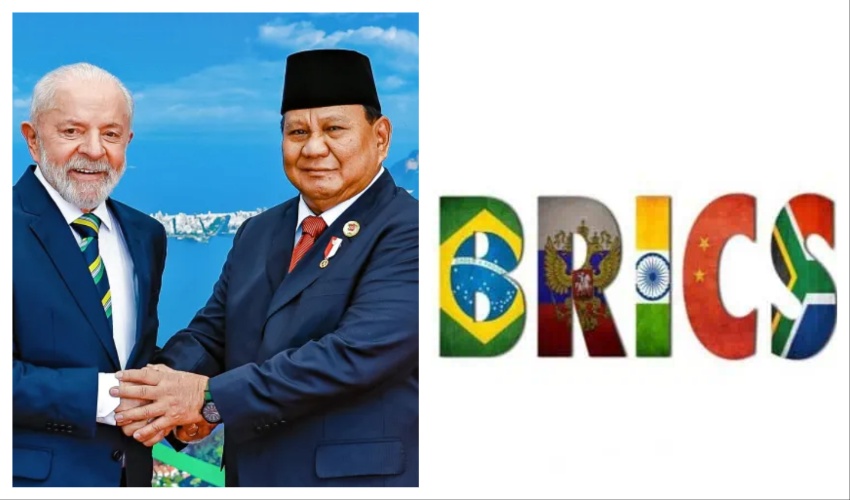Indonesia has officially joined the BRICS group of emerging economies, a move seen as part of its broader strategy to enhance collaborations among developing nations and counterbalance Western dominance.
The announcement was made by Brazil, the current chair of BRICS, on Monday, with Jakarta confirming its membership on Tuesday.
The bloc, which comprises Brazil, Russia, India, China, and South Africa, has been expanding its influence in global governance and economic discourse.
In a statement, Indonesia’s Ministry of Foreign Affairs hailed the membership as a “strategic step” to foster cooperation with developing countries on the principles of equality, mutual respect, and sustainable development. It also expressed gratitude to Russia, the incoming chair of BRICS for 2024, for its support in facilitating Indonesia’s inclusion.
Commitment to global reforms
Brazil’s foreign ministry noted that Indonesia shares the bloc’s vision for reforming global governance institutions and advancing cooperation within the Global South. Jakarta’s bid for membership was approved during the 2023 Johannesburg summit.
The group, initially coined as “BRIC” by a Goldman Sachs economist in 2001, formally took shape in 2009, with South Africa joining the following year. Recent expansions have included Iran, Egypt, Ethiopia, and the UAE, highlighting the bloc’s growing appeal among developing nations.
Push for 'de-dollarisation'
BRICS has increasingly positioned itself as an alternative to Western economic frameworks, with a focus on reducing reliance on the US dollar in international trade. Proposals for a common currency have gained traction among members, with Brazil’s President Luiz Inácio Lula da Silva committing to advancing payment mechanisms that facilitate intra-BRICS trade during his country’s presidency.
The move has drawn sharp criticism from Western powers, with US President-elect Donald Trump threatening steep tariffs on BRICS nations should they abandon the dollar in trade transactions.
Indonesia’s growing global role
Indonesia’s inclusion in BRICS underscores its growing influence on the international stage. “This achievement shows Indonesia’s increasingly active role in global issues and commitment to strengthening multilateral cooperation to create a global structure that is more inclusive and fair,” said the foreign ministry in Jakarta.
As Southeast Asia’s largest economy and most populous nation, Indonesia’s membership is expected to bolster BRICS' agenda of fostering sustainable development and reshaping global economic governance.



























